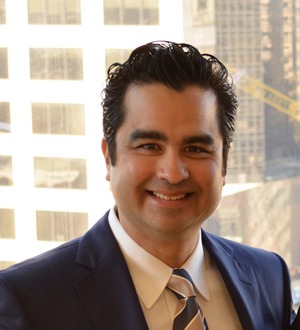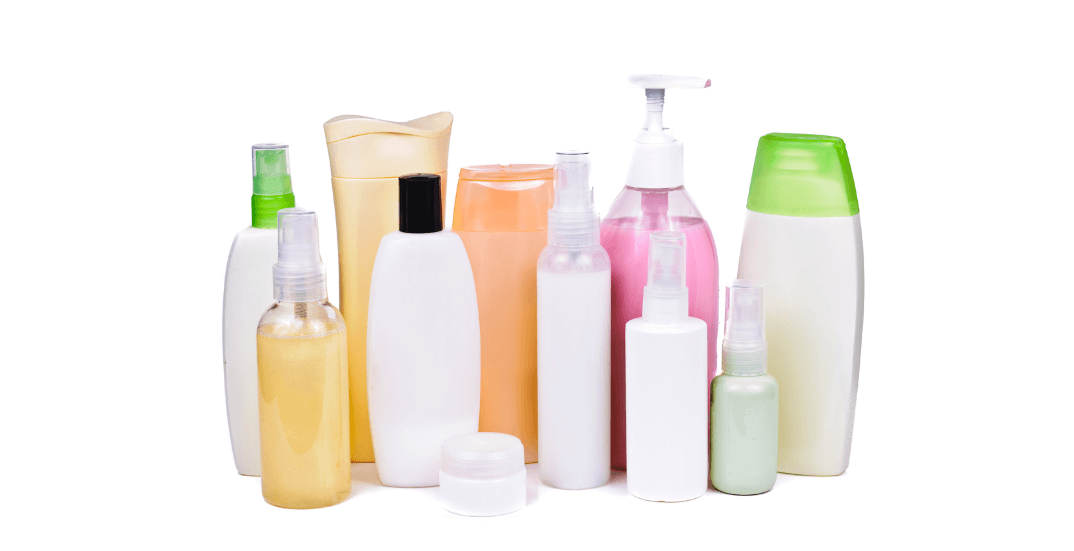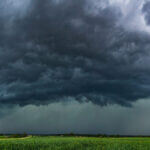
Partner at AKD Lawyers
Practice Areas: Personal Injury

A recent voluntary recall affecting several popular dry shampoo brands has uncovered benzene, a known carcinogen, lurking in common household products.
Key Points:
| Voluntary Company Recall | Mandatory Government Recall | |
| Issued By | Company/manufacturer | Federal agencies like FDA, CPSC |
| Reasons | Pre-empt reputation damage; limit liability | Protect consumers from dangerous products |
| Process | Negotiation period first | Order recall immediately |
| Frequency | More common initially | If voluntary doesn’t occur |
What percentage does benzene exposure increase leukemia risk?
According to cited studies, benzene exposure has been shown to directly correlate with increased leukemia risk by 40%. The studies found low benzene exposure Tripled the risk of developing acute myeloid leukemia (AML) and caused a Seven Times higher risk of acute non-lymphocytic leukemia. This reveals the dangerous carcinogenic impact of benzene finding its way into common household items like dry shampoos.
Recently, several dry shampoo products have been voluntarily recalled. Benzene, a known cancer-causing ingredient, has been found in excess in several common household dry shampoo products. Benzene has been linked to leukemia and several other blood cancers.
What Led to the Recall?
According to a recent article, the recall affects several common household beauty lines. Dry shampoo has been a favorite for people looking to extend the life of their blowout or skip washing their hair. It absorbs oil, leaving hair looking cleaner and refreshed.
Despite its popularity, the US Food and Drug Administration (FDA) has issued a voluntary recall of dry shampoo aerosol products that contain benzene manufactured by Unilever United States.
Benzene is a carcinogen that can be:
- Inhaled
- Ingested
- Absorbed topically
It is linked to:
- Leukemias
- Life-threatening blood disorders connected to bone marrow
Benzene has been classified as carcinogenic since 1979. The US banned benzene’s use as an ingredient. However, federal rules have allowed the carcinogen to be used in the manufacturing process of many personal care products while not being listed as an ingredient.
The Guardian reported early this year that hundreds of US personal care products have shown “life-threatening” levels of benzene. Most aerosol-based products, like dry shampoo, contained significant amounts of the chemical.
How the banned carcinogen is making its way into household products is unclear. Manufacturing companies have insisted that benzene has not been added purposefully to the products.

What Are the Effects of Benzene Exposure?
Benzene exposure causes damage on a cellular level. Cells fail to perform their proper function, leading to a host of problems. Anemia can be caused when bone marrow cells may fail to produce enough red blood cells. White blood cells can be reduced, leaving the body unable to effectively fight off infection.
How Can Benzene in Dry Shampoo Hurt an Individual?
Dry shampoo is used topically, but the aerosol spray can easily be inhaled. When benzene is breathed in, a person may experience:
- Headaches
- Drowsiness
- Dizziness
- Tremors
- Confusion
- Sleepiness
- Loss of Consciousness
Topically, benzene can cause skin rashes and other irritations. The biggest danger from benzene exposure in dry shampoo is the long-term effects.
What Are the Long-term Effects of Benzene Exposure?
The long-term effects of benzene exposure can cause various types of cancers. The Environmental Protection Agency has confirmed through numerous studies that there is no safe level of exposure to a known carcinogen. However, benzene has been detected in several dry shampoo products and other personal care items.
Even a small exposure may be enough to cause cellular breakdown, leading to:
- Several types of leukemia
- Bone marrow dysplasia
- Nervous system damage
- Excessive bleeding
- Damaged immune system
As of the date of this article, how the benzene carcinogen is being found in so many household products is unknown.
Which Dry Shampoo Products Are Being Voluntarily Recalled?
Benzene has been found in several lines of products. The company flagged specific lots of each product for recall. The products below have all been recalled. The various companies may offer refunds on recalled products if they belong to one of the identified lots. Nearly every aerosol dry shampoo product has been voluntarily recalled, including:
| Brand | Products |
| Dove |
|
| Nexxus |
|
| Suave |
|
| Tresemme |
|
| Bed Head |
|
| Rockaholic |
|
Consumers with recalled products should immediately stop using them and contact Unilever for a full refund.
What is the Difference Between a Voluntary Recall and a Mandatory Recall?
Product recalls may be voluntary or mandatory. The current dry shampoo recall is a voluntary recall on the part of the manufacturers.
Voluntary recalls are issued by the company. Typically, the Consumer Product Safety Commission (CPSC) has been in negotiations with a business or manufacturer to have hazardous products pulled from shelves. Voluntary recalls give agencies and companies time to investigate potentially dangerous products further.
Mandatory recalls are issued by government agencies. Currently, the FDA and the CPSC have the authority to issue a mandatory recall of hazardous products.
Companies are often motivated to issue a voluntary recall in order to mitigate the damage to their reputation if a product is discovered to be defective or harmful in some way. Voluntary recalls may limit the company’s liability in some instances.
How Many People Have Contracted Cancer from Benzene Exposure?
Several studies have been conducted over the decades to examine how many cancer cases can be linked back to Benzene exposure. For example, according to a recent article, benzene exposure can increase the risk of leukemia by 40%. In addition:
- Low exposure increased the risk of developing acute myeloid leukemia (AML) by 3 times
- The risk of developing acute non-lymphocytic leukemia was increased by 7 times
While exposure to benzene has decreased greatly since the US set benzene exposure limits, its newfound prevalence in dry shampoo and other beauty products is concerning.

Are There Alternatives to Dry Shampoo?
The majority of benzene was found in aerosol-based dry shampoo products. However, there are alternatives to the popular beauty products. For example, cornstarch and baby powder have both been used to absorb excess oil.
Some circles prefer natural products found in the home. Cornstarch mixed with cocoa powder can be an easy alternative for brunettes. Those with lighter hair may be able to use cornstarch alone. Just dust some on the scalp with a regular kabuki or face-powder makeup brush.
While many individuals are exploring natural alternatives for personal care, it’s essential to be aware of the surroundings and the safety measures in place, especially when on someone else’s property. For instance, understanding your rights in cases of negligent security in Louisiana or knowing what to do if you face an injury on someone else’s property can be crucial.
Additionally, being informed about the liability for injuries on Louisiana property can provide clarity in unfortunate situations. On a different note, it’s also vital to be updated about various incidents, such as truck accidents, and the latest legal news, like the Hard Rock class action request, to ensure one’s safety and rights are protected.
For those who believe their cancer is due to exposure to benzene, call 504-200-0000 or contact the esteemed attorneys of AKD Law for a consultation today.
Schedule a Free Consultation
For a free case evaluation for those affected by the dry shampoo recall or benzene exposure, contact AKD Law today. Their experienced attorneys can assess your situation and help protect your rights.
Frequently Asked Questions (FAQs)
What is the dry shampoo recall about?
Several popular dry shampoo products were recently recalled because they may contain benzene, a chemical that can cause cancer.
Which brands have been recalled?
Major brands like Dove, Nexxus, Suave, TRESemmé, and Bed Head have voluntarily recalled certain lots of their aerosol dry shampoos. Check the recall list to see if your product is affected.
What should I do if I have a recalled dry shampoo product?
Stop using it right away. Contact the manufacturer for refund instructions or return the product to the store where you bought it.
Is it dangerous if I have already used these products?
Short-term exposure to benzene may cause headaches and dizziness. Long-term exposure can increase the risk of certain cancers. If you are worried, speak with a doctor and mention any symptoms you have.
Can I still use other types of dry shampoo?
Non-aerosol products or simple alternatives like cornstarch or baby powder may be safer. Always read labels, follow any brand announcements, and choose products that have been tested and approved by trusted agencies.
Do I need a lawyer if I believe the dry shampoo caused my cancer?
If you think your health issues are related to these products, it may help to speak with an experienced attorney. They can review your case and advise you on possible next steps.
Summary of Key Details:
- Several dry shampoo products voluntarily recalled due to benzene
- Benzene is a known carcinogen banned from products but found through manufacturing
- Mainly seen in aerosol dry shampoos
- Short term effects include headaches, dizziness, skin irritation
- Long term benzene exposure can cause types of leukemia and other cancers
- Almost all brands of aerosol dry shampoos affected
- Voluntary recalls done first, but government agencies can mandate recalls
- Studies show increased leukemia risk from benzene
- Alternatives like cornstarch exist, but know injury rights
- Consult attorneys if you believe benzene exposure caused cancer
Check your dry shampoo purchases against recalled product lists. Stop use immediately if on list and contact the manufacturer for refund options. Be aware of exposure risks and alternatives where possible. Seek legal guidance if you or a loved one may have developed cancer from these products.
Categories

In 2003, after being dissatisfied with the quality of legal care for victims of car accidents, Roderick ‘Rico’ Alvendia sought to establish a new firm focused on providing high-quality legal services to aid injured victims and their families. J. Bart Kelly, sharing Rico’s passion for upholding justice, joined the firm later that year, and established a partnership.






